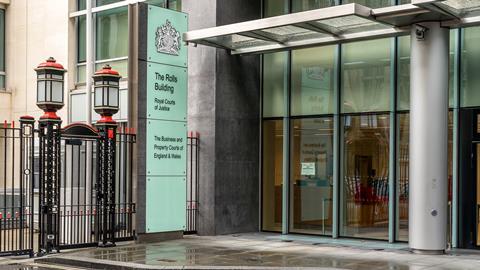Collective action specialist Pogust Goodhead does not need to disclose its funding agreement, judges dealing with the ongoing ‘dieselgate’ group claim have ruled.
The judgment, written jointly by Mrs Justice Cockerill and Mr Justice Constable, deals with two applications relating to funding disclosure and Mercedes documents, which were unable to be dealt with during a case management hearing earlier this month.
Although the funding disclosure application failed, the judges said ‘it will be appropriate to revisit the issue relatively shortly, to the extend it is pursued’.
Several defendants sought information on Pogust Goodhead’s funding position, including a copy of all agreements for finance, credit or funding, or documents explaining the terms on which funding has been provided to the firm or the distribution of the recoveries of damages or costs by the funders Gramercy and/or North Wall Capital LLC.
The judgment states: ‘The claimants’ claims can only be advanced, self-evidently, because of the provision of funding during the progression of the litigation. That funding is provided directly to Pogust Goodhead by the funders, rather than to the claimants and from the claimants to Pogust Goodhead by way of fees.
‘It is unrealistic, however, to suggest that this routing of funds is, in and of itself, sufficient to mean that the arrangements can in no circumstances amount to “contributing or agreeing to contribute to” the claimant’s costs for the purposes of the first limb of [CPR] rule 25.14(2) [relating to security against costs].’
The judges said there was a ‘potential disclosability of the terms of a funding agreement’ referring to the ‘substance, and not just the form, of the funding arrangement’. They highlighted ‘some concern’ with the application, including that it ‘may be premature…without considering submissions from the party against whom the security for costs application would be made and from whom the disclosure is, in reality, sought in circumstances where it appears to be accepted that no application would be made against Pogust Goodhead itself’.
A three-day costs management hearing is scheduled for June when costs budgets are expected to be fixed to spring 2026.
Declining the order disclosure, the judges said the issue would be ‘appropriate to revisit’ after the budgets have been fixed. It added that any funders against whom disclosure is sought ‘will have to be joined/in attendance to advance submissions’.
The Mercedes defendants also applied for an order that certain documents which contain ‘sensitive commercial information’ can be used for the purposes of the litigation but not otherwise.
The judges said ‘much of the information…is anodyne or already in the public domain’. They added: ‘The principle of open justice demands that documents read or referred to in a public hearing be available to the public unless there are good reasons otherwise. The Mercedes defendants have failed to persuade us that, as regards the materials that are the subject of this application, there are such good reasons.’






























1 Reader's comment